High in the mountains of western Flores lies Wae Rebo, a remote village often called the “Village Above the Clouds.” Known for its distinctive Mbaru Niang cone-shaped houses and UNESCO-recognized cultural heritage, Wae Rebo is more than a destination — it’s an immersion into a centuries-old way of life preserved with pride and care.
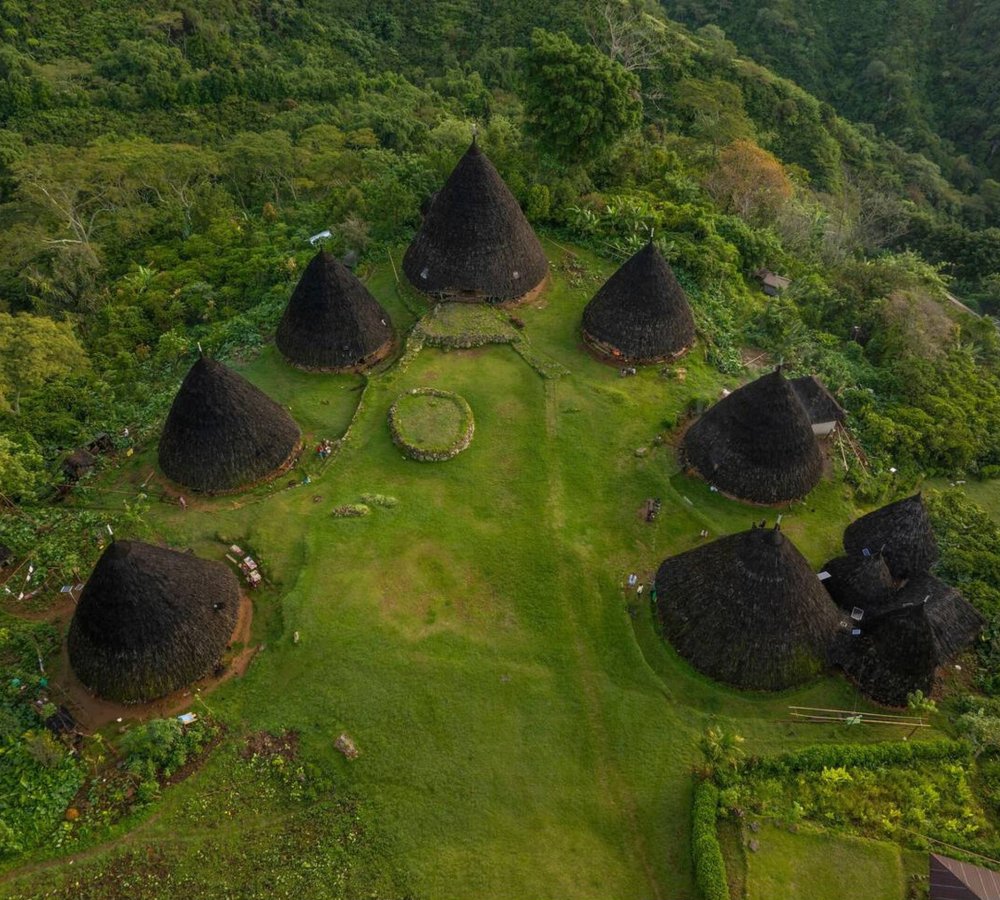
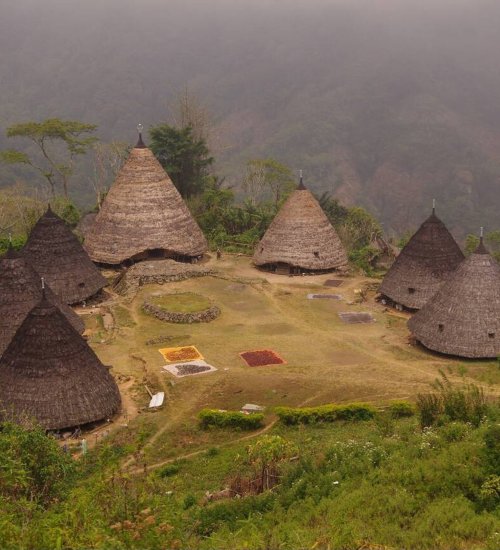
Reaching Wae Rebo is a journey in itself. After several hours on winding mountain roads from Labuan Bajo or Ruteng, you arrive at Denge Village — the starting point of the trek. From there, a 2.5–3-hour uphill hike awaits, winding through dense rainforest, bamboo groves, and coffee plantations. The air is fresh, the birdsong constant, and every turn brings you higher into the misty peaks.
When you finally emerge from the forest and see Wae Rebo’s seven thatched houses clustered in a lush green valley, it feels like stepping into another world — one untouched by modern rush.
1. The Welcome Ceremony
Visitors are greeted with a traditional welcome ritual in the main Mbaru Niang. Here, the village elders offer blessings and formally accept you as a guest. It’s a simple yet deeply meaningful tradition that underscores the respect between hosts and travelers.
2. Life in the Village
Wae Rebo is home to about 1,200 meters above sea level, where the cool mountain air makes coffee and vegetables thrive. Daily life moves at a gentle pace — villagers tend gardens, weave fabrics, dry coffee beans, and gather around evening fires. Staying overnight allows you to see the rhythm of life unfold naturally.
3. Sleeping in a Mbaru Niang
Accommodation is communal: visitors sleep on mats inside one of the conical houses, sharing space with other travelers. It’s simple, but the warmth of the community (and a thick blanket for chilly nights) makes it a memorable experience.
4. Food & Coffee
Meals are home-cooked using fresh local ingredients — rice, vegetables, and sometimes chicken or fish. The coffee, grown on surrounding slopes, is rich and aromatic, often served black and piping hot.
5. Photography Tips
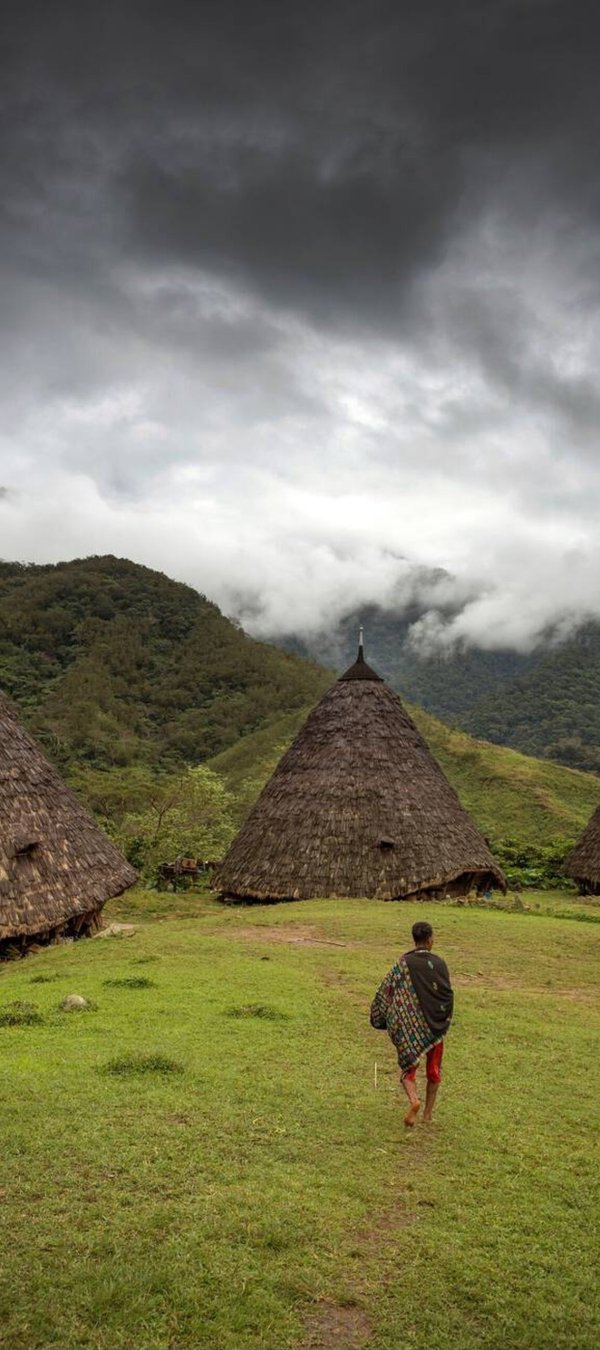
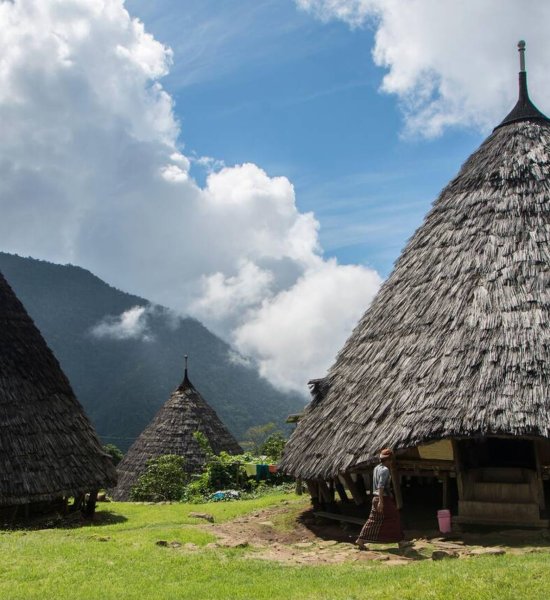
Simple squat toilets and basic washing facilities.
Electricity is limited; bring a power bank.
Pack warm clothes — nights can be cold.
Many travelers break the trip with an overnight in Ruteng before hiking.
Guides are required for the trek (often arranged in Labuan Bajo, Ruteng, or Denge).
Pros
Cons
Requires a challenging trek; not suited for all fitness levels.
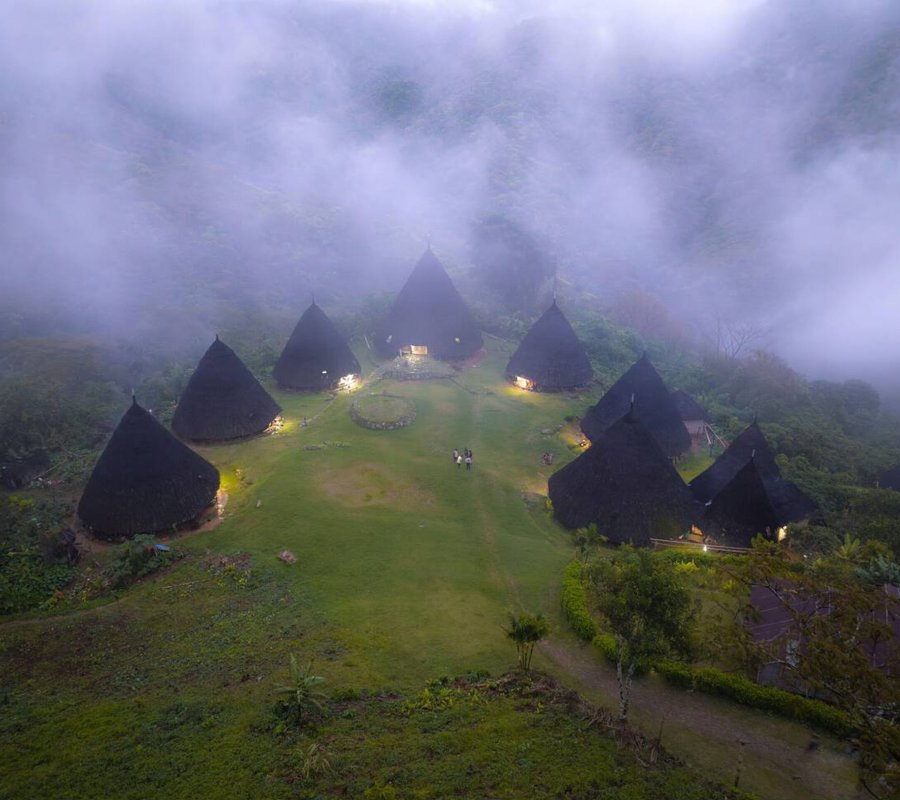
Wae Rebo is not just about seeing a beautiful place — it’s about experiencing a living culture in harmony with its natural surroundings. The journey demands time and effort, but the reward is a genuine connection with one of Flores’ most unique communities.
Travel Reviewer’s Rating: ★★★★★ (5/5) – A once-in-a-lifetime cultural and nature experience, best for travelers seeking depth over comfort.